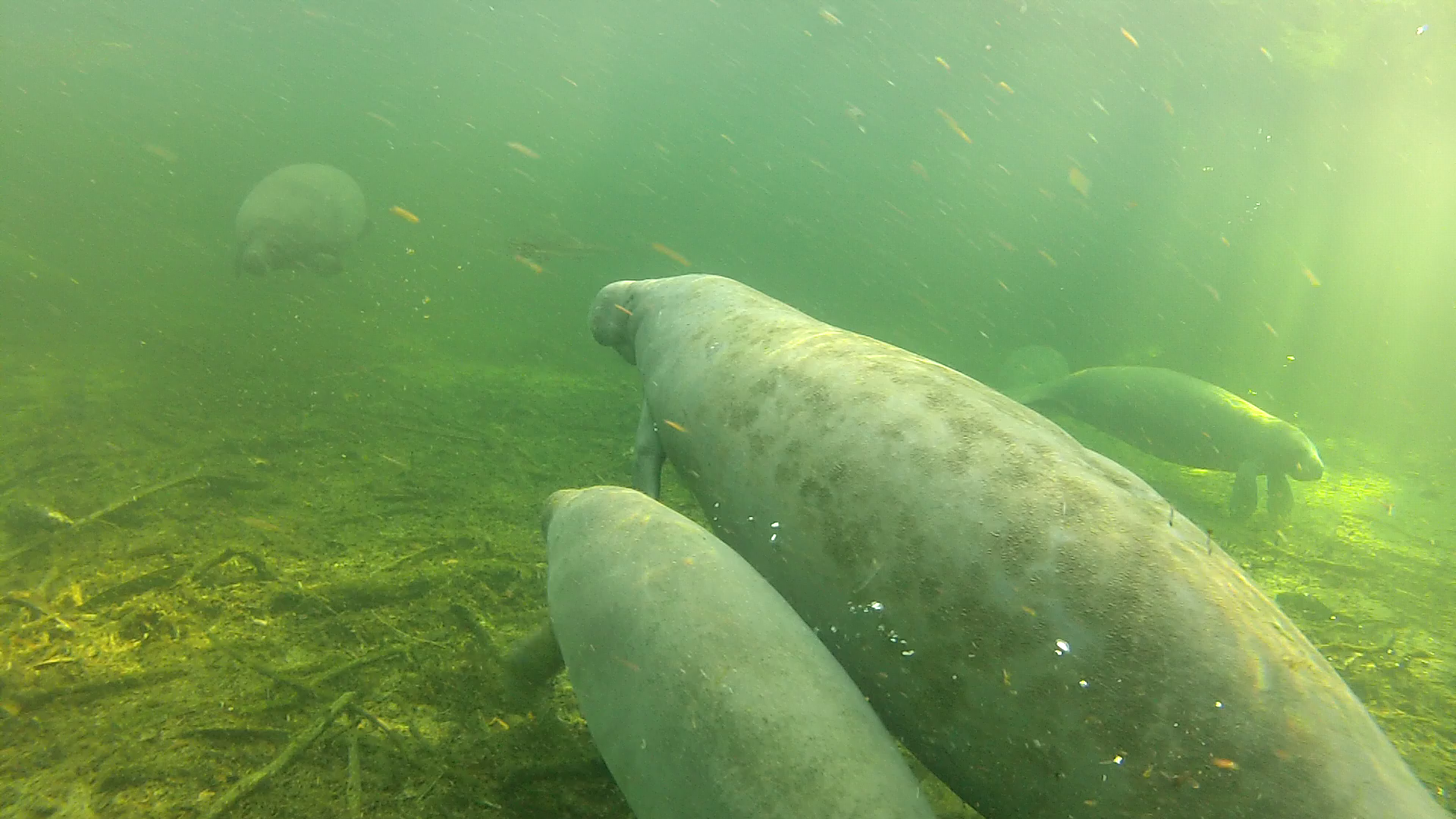 Manatees inhabit salt, fresh and brackish water and are herbivores feeding on a wide variety of submerged, emergent, and floating aquatic vegetation. In the winter time, when water temperatures drop, manatees congregate at warm-water springs, such as Blue Spring State Park in large numbers. Others along the coast congregate at the warm water outflow of power plants. During the spring, summer and fall manatees migrate and with rising water levels, manatees have increasingly been seen in the Wekiva River!
Manatees inhabit salt, fresh and brackish water and are herbivores feeding on a wide variety of submerged, emergent, and floating aquatic vegetation. In the winter time, when water temperatures drop, manatees congregate at warm-water springs, such as Blue Spring State Park in large numbers. Others along the coast congregate at the warm water outflow of power plants. During the spring, summer and fall manatees migrate and with rising water levels, manatees have increasingly been seen in the Wekiva River!
Manatees are slow-moving animals, swimming at an average of 3-5 mph and have no natural predators. They can oftentimes be seen in the vicinity of alligators. The summer months are also the time of year when most mother manatees give birth to their young. Oftentimes they seek out shallow canals and protected areas to give birth and raise their calves, who stay with them for 1-2 years. Learn more here!
Although manatees have no significant natural predators, they are listed as a threatened species and protected by several laws. Collisions with watercraft, habitat loss, entanglement in fishing line, crab traps and debris, red tides and other harmful algae bloom as well as cold weather are some of the major issues manatees face. In fact, over 90% of living manatees bear scars from these collisions and researchers use these to identify individuals.
Documenting manatee sightings is important and provides important data for researchers as they are trying to further understand how manatees are using the Wekiva River. Save the Manatee Club has an online form where citizens can easily report sightings and upload photos or videos. In the summer of 2019 and 2020 several manatees were sighted in the Wekiva River that proved to be known individuals from Blue Spring! Among them were ‘Mata Hari’ and her calf, who made it all the way up to the Wekiva head spring, ‘Peyton’ and her calf who visited Wekiva Island, ‘Marge’ who may have given birth to her calf in a resident’s canal, and ‘Jocie’ with her small calf. Report sightings of manatees in the Wekiva River here!
Any sick, injured or dead manatees, as well as speed zone violations should be reported to the Florida Fish and Wildlife Conservation Commission (FWC) at 1-888-404-3922. It is against the law to feed or water manatees as it habituates them to humans and makes them approach docks, boats and marinas which can put them in harms way. The best way to observe a manatee is by practicing passive observation from a distance. If you are out boating, please obey the posted speed zones and look out for manatee snouts as they come up for air or for the manatee ‘footprint’ – a circular pattern on top of the water that the manatee makes with its tail when it swims. Not sure how to report a speed zone violation? Check out this video!
If you live near the water, you can request free aluminum dock signs from Save the Manatee Club, along with waterway cards that feature manatee protection tips, yellow decals with the FWC number on them, and other educational information. For more information and to request these materials, go to savethemanatee.org/resources.



